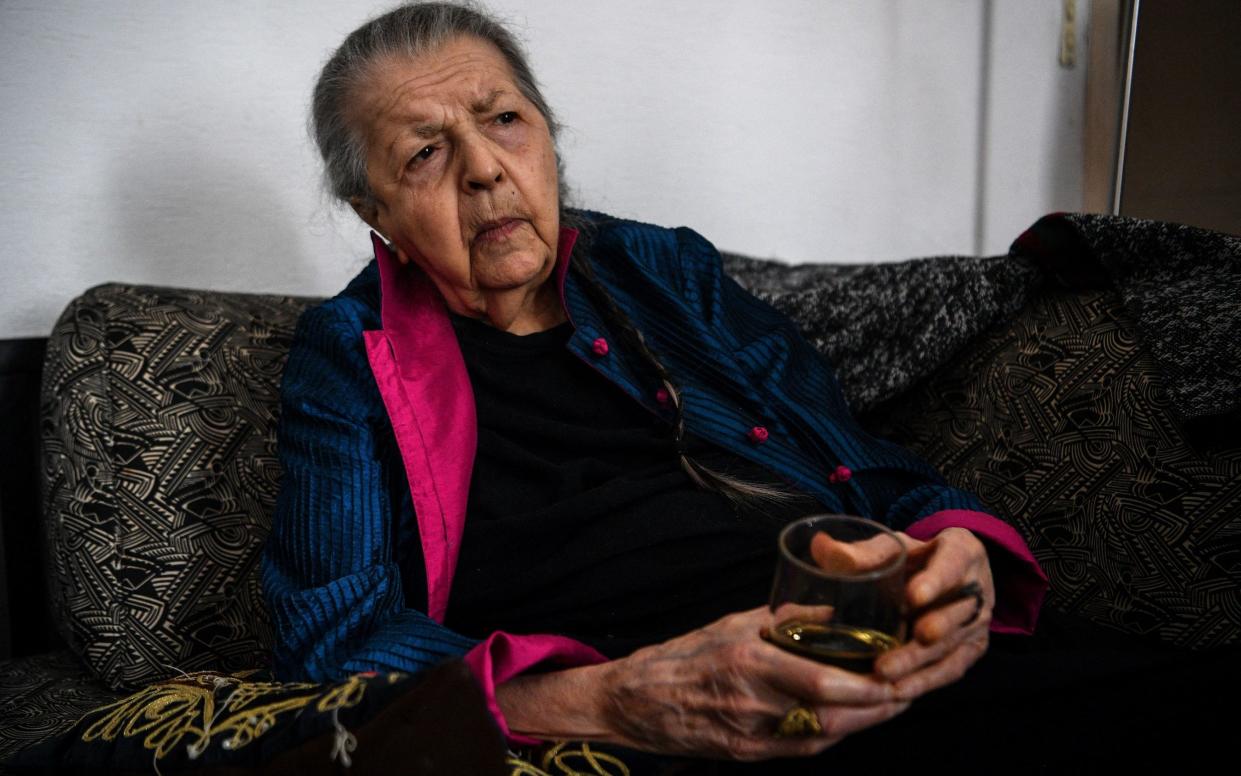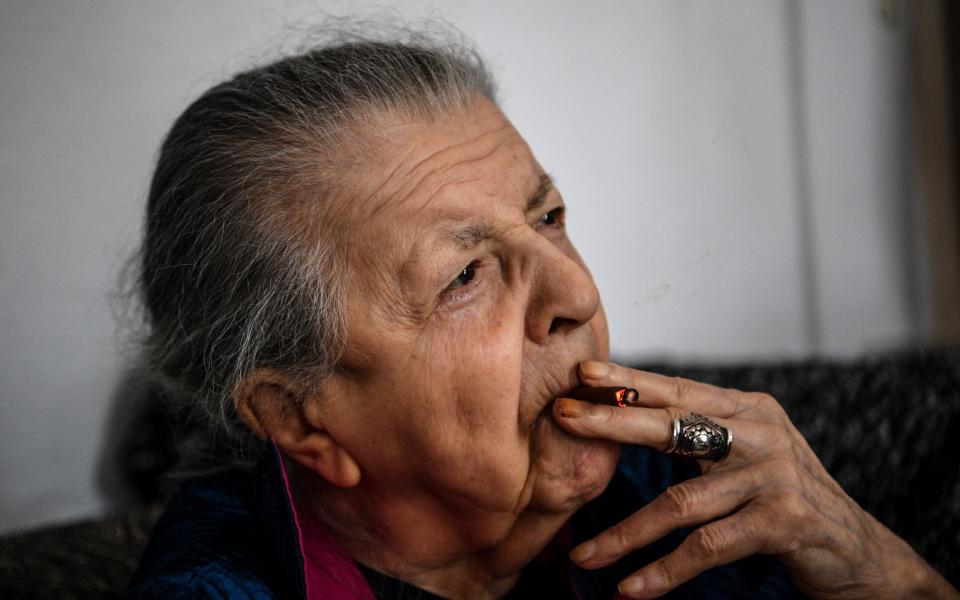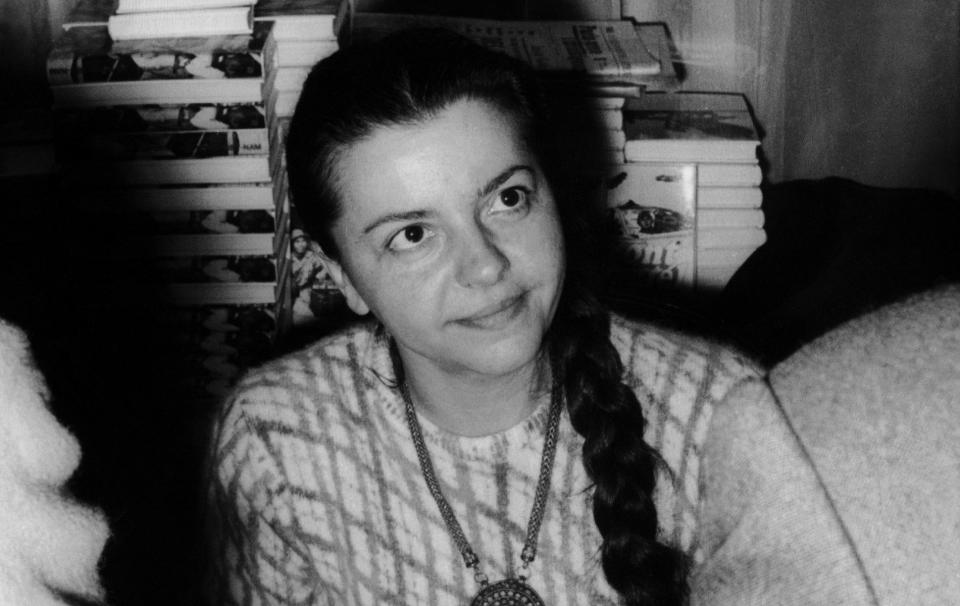French Resistance heroine 'defrauded' by care worker who used money to buy sex toys

A care worker has gone on trial accused of defrauding French wartime Resistance heroine Madeleine Riffaud out of €140,000 to buy personal items including sex toys.
Ms Riffaud, who turns 100 next year, is a household name in France not just for shooting dead a German soldier and surviving Gestapo torture, but also for being a renowned poet and the country’s first female war reporter.
As recently as this month the staunch Communist gave an interview to Le Monde newspaper in which she reminisced how a “kick in the ass” from a German soldier whose advances she refused in a train station prompted her to join the fight against the Nazis.
While still sound of mind, she is frail, bed-ridden and blind and as a result she requires home help.

The woman who ran the company tasked with caring for her, known only as Myriam B., 67, went on trial on Tuesday for allegedly using Ms Riffaud’s credit card to steal more than €140,000 (£120,000) of her money, which she withdrew from ATMs or spent online.
Her alleged purchases included Chanel perfumes, Claudie Pierlot clothes and handbags, Pokemon T-shirts and a “clitoral vibrator” purchased on Amazon. Withdrawals varied between tens to thousands of euros.
A witness cited in the case said she had even turned up to a bank masquerading as the 99-year-old to withdraw €15,000 (£13,000) from a life insurance account.
The defendant faces charges of “aggravated abuse of weakness” of a “vulnerable person”, which carry a maximum sentence of seven years in prison and a €750,000 (£646,000) fine.
Years of deceit
An investigation was launched after an assistant became suspicious when the accused told her not to open sealed envelopes containing Ms Riffaud’s bank statements.
The employee eventually did open the statements and was shocked to find a plethora of payments for goods that the near-centenarian was highly unlikely to have made herself given her “modest way of life”.
While Ms Riffaud ate very little, inspectors noticed a steady increase in her sometimes “mind-boggling” food expenses, including restaurant deliveries, between 2013 and December 2021.
Despite being bedridden since 2018, they found regular payments to beauty salons and hairdressers that often corresponded to changes in Myriam B.’s hairstyle or outfits.
Meanwhile, the pensioner had her hair cut by her cleaning lady and had been wearing the same moisturiser and perfume for years.
Friends who visited said the ex-Resistance fighter looked neglected and she confided in them that her hair had not been washed in “months”.
Ms Riffaud, who has “retained all her mental capacities and therefore has an excellent memory”, told police that Myriam B. “quickly interfered in [her] life and prevented certain people around her from seeing her”.
Ms Riffaud a “diva”
In police custody since April this year, Myriam B. insists that all these expenses were justified because Ms Riffaud led “a fairly lavish lifestyle”.
The care worker described the elderly woman as a “diva who demanded far too much attention” and claimed she was “particularly fond of good food, ignored the value of money and handed out expensive gifts”.
Unable to attend the trial, Ms Riffaud told France Inter on Tuesday: “It’s a bit stupid but I can defend myself. I can fight.”
Myriam B. denies wrongdoing.
French heroine
Ms Riffaud began working for the French Forces of the Interior at the age of 18 under the codename “Rainer”, participating in several operations against occupying Nazi forces and contributing to the capture of 80 Wehrmacht soldiers from an armoured German supply train.
On July 23, 1944, on her 20th birthday, she shot dead a German officer in broad daylight on a bridge overlooking the river Seine.
She told Le Monde the idea was to “step up our actions so that Paris would rise up” after the Normandy landings. “We had to send out a signal, make a splash by shooting a German in front of everyone, an officer if possible, to show that this was the solution.”
Captured by a French collaborator and handed to the Gestapo, Ms Riffaud was tortured and held in Fresne prison. She managed to escape from a train heading for the Ravensbrück women’s concentration camp only to be recaptured and sentenced to death.
She was released at the eleventh hour in a prisoner swap.

After the war ended in 1945, the French heroine became a journalist and reported on the Algerian War for the Communist newspaper L’Humanité, losing an eye during the conflict.
Pablo Picasso drew her portrait for the frontispiece of her collection of poems published in 1945.
In 1946, she met with Vietnamese nationalist leader Ho Chi Minh in Paris, moved to South Vietnam, and lived with the Viet Cong resistance for 7 years. She fell in love with poet Nguyễn Đình Thi but they were unable to marry because of a law forbidding the marriage of Vietnamese and foreigners.
Upon her return to France, she worked as a nursing assistant in a Paris hospital, where she wrote the best-seller Les Linges De La Nuit (Night Laundry).
She was awarded the National Order of Merit in 2013.
Asked about the current state of the world this month, she told Le Monde: “The world is covered in blood. We tried to make it better; we probably failed.
“I’m leaving it in a state that’s really not what I would have wanted. You have to tell the truth, you see, even when the truth is dark.”

